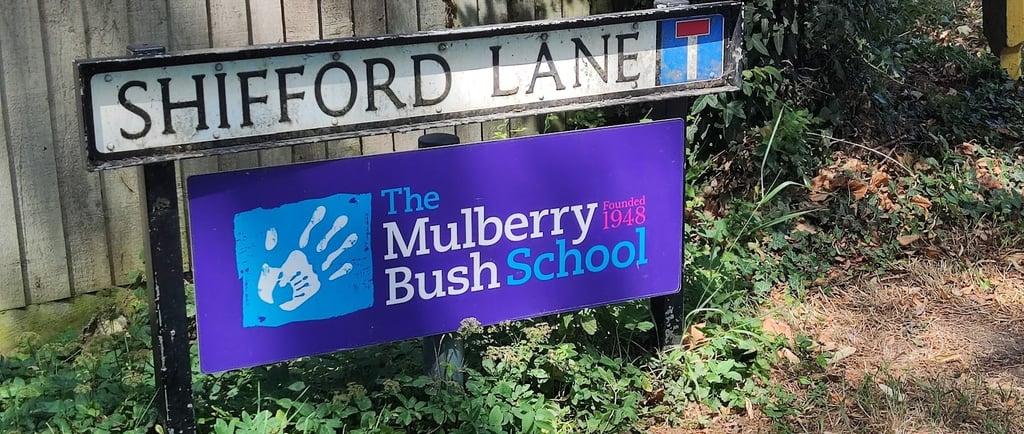Returning to the Mulberry Bush – 40 Years On
7/8/20252 min read


This morning, I found myself standing once again on the grounds of the Mulberry Bush School in Standlake — a place I had last visited over 40 years ago. Back then, I was a student teacher at Standlake Primary, and two of the children in my class were gradually transitioning back into mainstream education after time spent at the Mulberry Bush. I remember them well. I remember how carefully we worked with staff at the school to help those two little boys find their place in a world that had not always been kind to them.
It was a different era, of course — and the world of therapeutic education has evolved immeasurably since then — but the heart of the Mulberry Bush remains just as I remember it: a place of calm, structure, safety and hope.
Founded in 1948 by the pioneering child psychotherapist Barbara Dockar-Drysdale, the Mulberry Bush is a specialist residential school for children aged 5 to 13 who have experienced significant trauma in early life. These are children who, for reasons often beyond comprehension, have been let down by the very people and systems meant to protect them. And yet, here, they are seen. Really seen. And supported — not just to survive, but to begin to thrive.
Walking around the school today, I was struck by the gentle rhythm of the day: routines clearly designed to make children feel safe and held, even when they might not have the words to say how they’re feeling. Small class sizes, nurturing staff, and a deep integration between education and care — this isn’t simply a school, it’s a therapeutic community.
I had the great privilege of meeting members of the team, including the Head Teacher, Jessica Hooper, whose background in mainstream education has brought both insight and innovation to the school’s work. Her care, professionalism, and unwavering belief in the potential of every child was inspiring.
The Mulberry Bush is rightly proud of its Ofsted ‘Outstanding’ rating, achieved in all areas. But even more impressive, to me, is the emotional temperature of the place. There is a quiet confidence in the work being done — a sense of profound responsibility, coupled with warmth and deep humanity.
Forty years ago, I saw the fruits of that work firsthand. The boys in my class came to us with complex needs and painful histories — but with the support of this extraordinary school, they were given the tools to regulate, relate, and reconnect with the world around them. I often wonder where life took them. I hope they’ve found peace and purpose. I think they probably have.
Today, the Mulberry Bush is more than a school. Through its outreach, consultancy, and research programmes, it is sharing its therapeutic approach with other schools and organisations across the country. It is training the next generation of educators, therapists, and carers to put relationships at the heart of their work. And it is doing so with integrity, rigour, and compassion.
I left Standlake today with a full heart. It was a visit that took me back — but also one that pointed forward. In a world that can feel increasingly fractured, it was a quiet reminder of what can happen when we invest in children who are too often pushed to the margins.
And it reminded me why we must keep listening to — and hearing — the young unheard.
The Oxfordshire Shrievalty
Championing justice and community across Oxfordshire
© 2026. All rights reserved.
